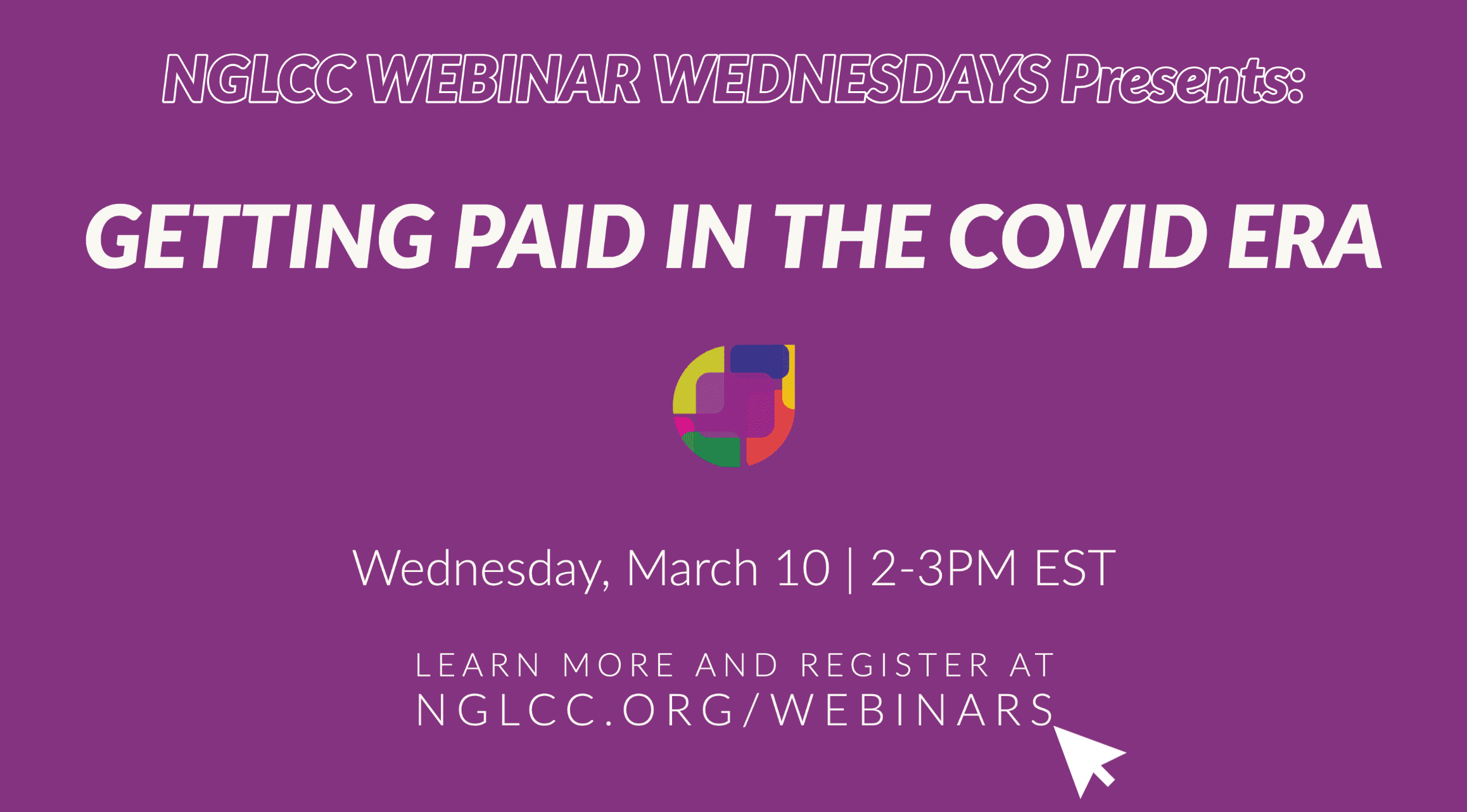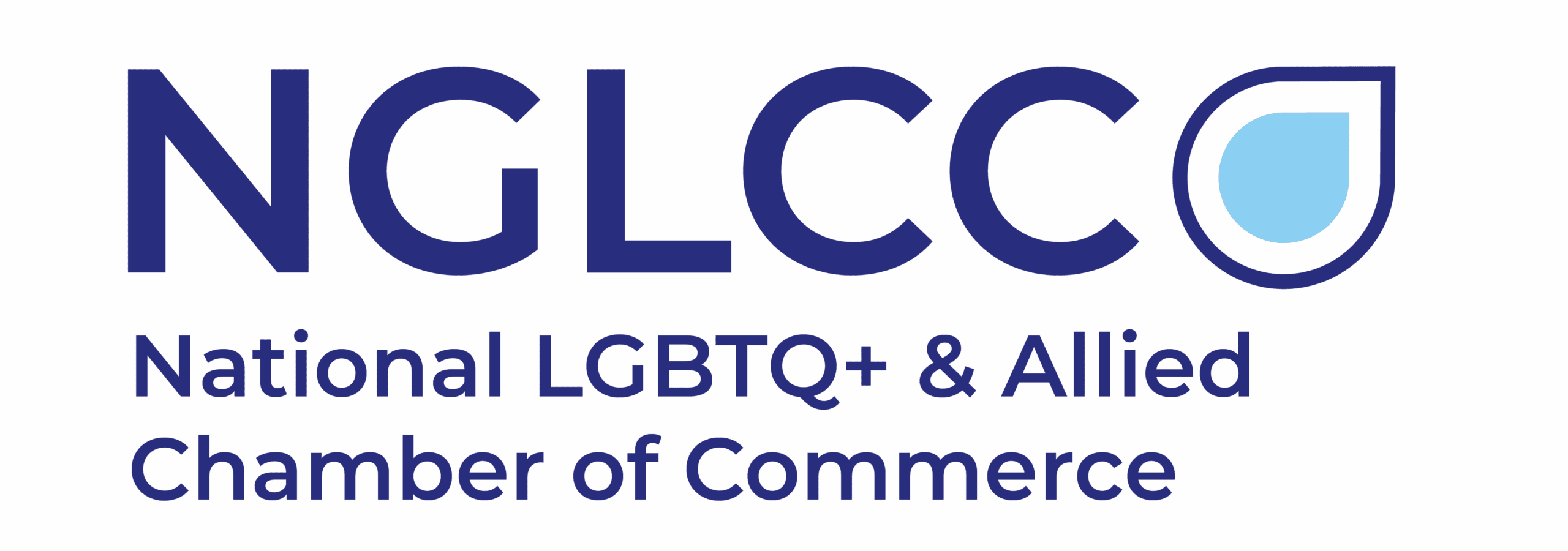Managing and protecting your business’ finances can be tricky. Doing so during COVID-19 can become even more complicated. Last week, Matt Garcia of Certified LGBTBE® Barnett & Garcia, PLLC, and Commercial Law League of America (CLLA) President Timothy Wan of Smith Carroad Levy Wan & Parikh, P.C., joined forces at NGLCC Webinar Wednesday to offer seasoned advice on the commercial credit value chain to an audience of Certified LGBTBE® owners and allies. Here are NGLCC’s main takeaways from their informative presentation:

Your business doesn’t want bad financial press or a blemish on its credit record. An understanding of the inner workings of the commercial credit value chain is crucial to navigating credit and collections processes, as well as making decisions about how to manage your business’s finances.
The first component of this chain is examining and defining your credit policy and procedures. Analyze your credit policies, sales policies, standard forms, risk management strategies, and credit extension management strategies with each customer and organization with whom you contract. Establish good credit practices and policies to manage your own risk so you can decide who you want to extend credit to and in what capacity.
The second component of the commercial credit value chain is the credit application and investigation. During this process, you will want to analyze the business history, credit score, judgments, and past bankruptcies of anyone to whom you are considering extending credit. Your business should also conduct a credit risk analysis and consider personal guarantees throughout the credit decision making process. Credit applications are incredibly useful because they aid in the formation of a written contractual relationship, which can provide useful information and specific legal remedies to both parties in case of payment failure. These are essential for businesses that are considering extending credit to others. When drafting credit applications, be sure that the outlined interest is aligned with state laws, and ensure that reasonable attorney fees and costs of collections are built into the contract. Always ensure that the contract includes correct business names, the types of businesses involved and their details, the principal place of business, requirements for change of name or ownership for the customer, and the venue for jurisdiction.
The third component of the commercial credit value chain is contract and lien negotiation. This involved any additional negotiation that involves contract development, negotiating terms and credit limits, lien protection, UCC filings, personal guarantees, and formalization. Garcia and Wan advised the audience that personal guarantees are essential to winning collections cases and are necessary when businesses have more financial risk. Personal guarantees should include the party information, considerations for the guarantee, a signature as an individual, and a witness or notary as well as the date of the guarantee. The guarantee should also be for payment, NOT collection.
Next up on the chain is sales and delivery. Your business should keep careful track of all paperwork, receipts, and proof of the signed contract, processing orders, delivery documentation, invoicing procedures, processing payments, and statements of account for businesses.
If payment fails to be made, the next step is collections. You should select a third party partner, whether an agency or an attorney, to handle the collection process. Considerations during the search process should include whether the agency is licensed and bonded, certified, a member of CLLA or IAAC, and its ratings. As far as collection agencies go, you get what you pay for! There are a variety of different agencies out there to assist your business with collection, and they should be used in the case of a defaulted payment.
If legal action becomes necessary, litigation or alternative dispute resolution and post judgment remedies are the final steps you can take through the commercial credit value chain to obtain your rightfully earned money. Be sure to collect the relevant details related to the goods sold and delivered, as well as the purchase order, acknowledgement, written and signed contract, delivery receipt, statement of account, and any guarantees as described in the previous steps. As Garcia and Wan say, remember that a judgment doesn’t win you the war – it only wins you the battle.
**
For more information, view the full webinar here.
Note: The information provided on this website does not, and is not intended to, constitute legal advice; instead, all information, content, and materials available on this site are for general informational purposes only. Information on this website may not constitute the most up-to-date legal or other information.
You can contact Matt Garcia at matt@barnettgarcia.com if you would like to speak to a certified NGLCC attorney.
NGLCC ally Timothy Wan can be contacted at TWan@SmithCarroad.com.
